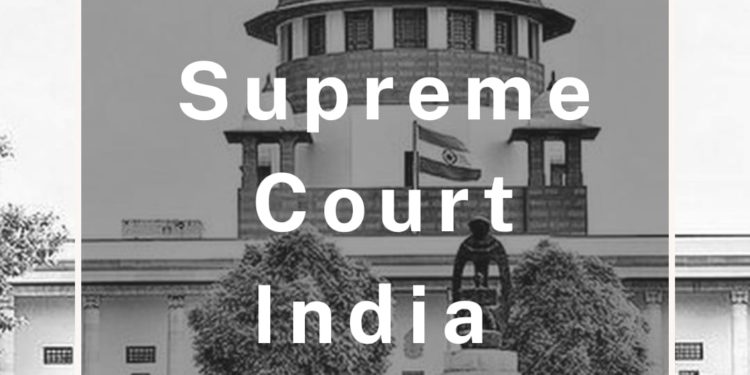The Supreme Court in its recent judgement has reduced sentence awarded to a man convicted under Section 498A of the IPC to period already undergone after he agreed to pay compensation to his wife and children.
The bench of comprising of Justice Sanjay Kishan Kaul and Justice Hrishikesh Roy observed,
Object of any criminal jurisprudence is reformative in character and to take care of the victim.
Case:
This was man’s second marriage and his wife had filed a complaint under Section 498A IPC alleging mental and physical torture, including demands of dowry by the accused.
Trial Court
The Trial Court held him guilty and sentenced to three years of rigorous imprisonment with a fine of Rs 10,000. The First Appellate Court dismissed the appeal filed by him and later the revision petition filed by him was also dismissed by the High Court.
Supreme Court
The man told Supreme Court that he was willing to pay up compensation of Rs 3 lakh to his wife and the children, for which he requested for about six months’ time to raise the money. The court noted that the wife was in agreement to receive the said compensation. The court thus remarked,
If the petitioner/appellant is showing remorse and is willing to make arrangements for respondent No. 2 and his two children born out of the wedlock, we would not like to come in the way of such an arrangement, which should be beneficial to respondent No. 2 and her children.
The bench further observed that the object of any criminal jurisprudence is reformative in character and to take care of the victim. The court noted,
It is towards this objective that Section 357 of the Code of Criminal Procedure is enacted in the statute. The objective of which is to apply whole or any part of the fine recovered to be applied on payment to any person of compensation for any loss or injury caused by the offence. In the present case, it is one of voluntarily offering the amount albeit to seek a reduction of sentence.
The apex court took note of the fact that the accused had already undergone about seven months of sentence, thereby reducing the sentence to the period undergone in case he pays a sum of Rs 3 lakh as compensation. The bench emphasised that in case the amounts were not deposited, the appellant will have to undergo the remaining part of his 3-year sentence.
As readers, do you think such judgements set the right precedent? Do such judgements not give out a message that a man accused of dowry, or even falsely accused of dowry will be pardoned, if he submits to pay up compensation? Will dowry and 498A laws be further misused, in order to make the man pay and save himself from jail term?
Do share your views in the tweet below.
ALSO READ –
Supreme Court Orders Husband To Pay Up Rs 4 Crore Alimony Despite Pandemic | Quashes Cases Against In-Laws
“Woman Wilfully Deserting Husband Entitled To Alimony After Divorce”: Supreme Court of India
Supreme Court Grants Divorce To Husband After 17-Years; ‘Cruel’ Wife Gets Rs 1.5 Crore Alimony
If Your Husband Goes To Jail You Will Lose Monthly Compensation | SC Convinces Couple To Get Together After 21-Years
MUST WATCH –
Interview | Justice Markandey Katju | Are Matrimonial Rights In India Biased Against Men?
Join our Facebook Group or follow us on social media by clicking on the icons below
Join our Facebook Group or follow us on social media by clicking on the icons below
If you find value in our work, you may choose to donate to Voice For Men Foundation via Milaap OR via UPI: voiceformenindia@hdfcbank (80G tax exemption applicable)






























